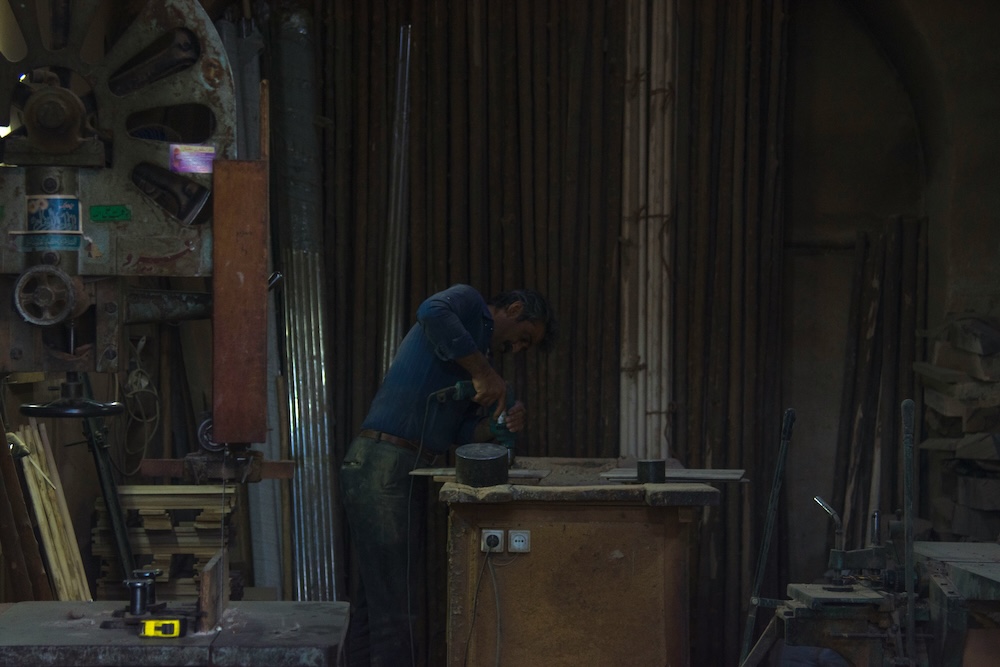Paul Shackson, Communications Manager at the Welsh Refugee Council, explains how a skills shortage in Wales could be tackled thanks to a ready and willing workforce waiting to help.
The bad news first: Wales is currently in the midst of a skills and recruitment crisis in key sectors such as health, social care, and green energy / construction which is likely to get steadily worse over the coming years.
This has the power to derail our economic growth and development plans, put ever increasing pressure on our public services, and impact the very fabric of our communities.
According to Welsh Government figures, as of June 2024, the number of full-time equivalent vacancies across NHS Wales was over 5,500, an estimated vacancy rate of 5.8%. For medical and dental staff the vacancy rate was 10.4%.
Our care system doesn’t fare much better: Social Care Wales’ Workforce Report 2022, says there were over 5,000 vacancies recorded, 9% of the total workforce, and our construction sector has the most worrying figures of all – according to the Construction Industry Training Board (CITB), Wales will need an extra 11,000 construction workers by 2028 to meet demand, with Welsh construction output set to rise by 1.2% annually between now and then.
Wales is currently in the midst of a skills and recruitment crisis in key sectors such as health, social care, and green energy / construction which is likely to get steadily worse over the coming years.
This immediately impacts our ability to deliver a new green revolution, which builds on Wales’ rich industrial heritage, but in a way that benefits future generations both economically and environmentally.
Adding fuel to the fire is the fact Wales has an ageing population; the number of people over the age of 60 living in Wales is set to reach just over 1 million by 2031, 31% of the population. Only last year, CBI Wales issued a best practice guide in partnership with Public Health Wales and the Bevan Commission, warning that a shrinking workforce and declining health will hit productivity, recruitment, and resilience across the country.
But there is help available to tackle this bleak situation. What if I told you that Wales already has thousands of people wanting to work, but are banned from doing so?
Syniadau uchelgeisiol, awdurdodol a mentrus.
Ymunwch â ni i gyfrannu at wneud Cymru gwell.
Sanctuary Seekers are a willing and able workforce ready to fill these vital roles, supporting Wales to meet its economic growth targets and the needs of its changing demographic.
At present, the rules are stacked against them. The Home Office may grant permission to work to sanctuary seekers whose claim has been outstanding for more than 12 months through no fault of their own — but even then, they are only allowed to work in the limited roles listed on the UK-wide Immigration Salary List. The problem is that this list does not reflect Wales’ labour market needs. Many of the roles we are most desperate to fill — including care home support staff, community workers, and a range of skilled construction trades such as plasterers and glaziers — are excluded from the list altogether. That leaves thousands of people in limbo while employers struggle to fill vacancies.
What is needed is an immigration salary and occupation list tailored to Wales. This would give Wales the tools to meet its own labour market requirements, strengthen the economy, and ensure that those ready to work can do so in the sectors where they are most urgently needed.
To make this possible, the Welsh Government must lobby Westminster and make the case for the good of the Welsh economy and communities.
But there is help available to tackle this bleak situation. What if I told you that Wales already has thousands of people wanting to work, but are banned from doing so?
This scenario is a win-win. Businesses will have access to a ready supply of skilled, motivated workers to meet record demand. More people will be paying tax, meaning fewer relying on welfare, easing pressure on public finances and growing the economy.
For sanctuary seekers themselves, this provides a fast-track to contribution. Instead of being stuck in limbo, they can fill vital roles, support themselves and their families, and actively contribute to the Welsh economy and society from the outset.
The bottom line is that sanctuary seekers are not asking for handouts. They are asking for the chance to stand on their own feet, to give back to the communities that welcome them, and to help build a stronger Wales for everyone.
Allowing people to work is not just the right thing to do, it’s the smart thing to do: strengthening public finances, easing pressure on stretched services, and helping businesses fill critical gaps. Wales cannot afford to waste talent that is already here, ready and willing to contribute, unlocking that potential is simple common sense – so let’s make it happen!
All articles published on the welsh agenda are subject to IWA’s disclaimer. If you want to support our work tackling Wales’ key challenges, consider becoming a member.





